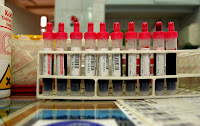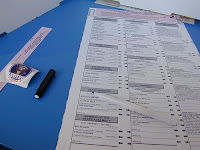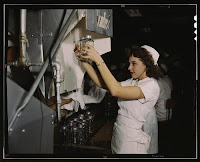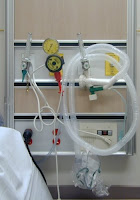Today – December 3rd – is my other birthday.
Two years ago I had the liver transplant that saved my life.

Last night, my husband and I reminisced about how the experience unfolded: THE telephone call that came midday on Dec. 2nd; a flurry of phone calls, arrangements, packing; the two-hour ambulance ride through a drenching thunderstorm; all the rushing, just to get to the hospital and then having to wait six hours for surgery to begin (the operation started around 1:00 am, which is why Dec. 3 – not 2nd – is my other birthday). And ultimately, good news that the transplant was successful.
I am grateful and humble when I remember this day and all that went before and after. There are many, many people to thank; please indulge me while I recognize just a few of them:
* First and foremost, my husband, Gene, who walked every step with me. I had it tough, but at least I was on drugs. He persevered through it all, God bless him.
* Carolyn, Chris, Happy and Dene, who traveled to the transplant center with us and helped Gene survive the hours of waiting both before and during my surgery
* Carolyn also visited often and was the positive force that kept Gene’s spirits up, spoiled the kids with Christmas gifts (Wii? Tiffany’s bracelet? I was NOT consulted about these gifts!) and was the glue that kept our world together
* Regina, who dropped everything and put her life on hold to stay with our kids for two weeks AND had our carpet cleaned while she was here
* Larry, who with Chris, helped our son transition into crew and made sure he always had transportation to and from practice
* Karen, who visited frequently, drove kids to and fro, and made sure the whole family received new pajamas on Christmas Eve
* Cari, who along with Carolyn and Karen, made sure the kids had a fabulous Christmas and plenty of gifts, including the leopard print desk chair
* Peggy and Dave, and Pam and Steve, who hosted our children several times and always at the spur of the moment
* Debbie, who was master of the “feed Jay’s family” schedule – no small feat – and kept it organized for many months while I recuperated
* Gary, with Dene, who took the kids on an eight-hour (one way) road trip to attend a family gathering, and who endured Dene’s absences while she babysat me once I finally returned home from the hospital
* Helen, the fabulous type-A powerhouse who drove two hours to visit me in the hospital and rub lotion on my feet (is there anything better?!), and together with her husband, Rick, secretly continue to do many good deeds that make the world wonderful
* Sally and Angie, who made sure our power bill got paid
* Allen, who with Happy, brought me communion every week for months and prayed for me and my family
* Rosemary and Dick, who sent me a prayer shawl from their church in Huntsville
These are just some of the countless people who helped us time and time again, each and every one of whom I cherish. Thank you to these friends and family who were the key support system that sustained us. My sincere gratitude, too, to Dr. B, Laura, Theresa, Dr. S, Dr. K, Dr. Z, Dr. R and so many other medical professionals who kept me alive.
Dec. 3rd will always be an extraordinary day in my world. My family will celebrate tonight with a special dessert – chocolate chip cookies made by my daughter. Yeah!
For everyone waiting for or recovering from transplant surgery, I send you my best wishes. It can be a long, tough road but in the end, it’s well worth the struggle and sacrifice.
God bless.
 on Tues. evening (12/19), she endured another round of complications that I was convinced would set her back. But Jay bounced back miraculously the next day, and then last night - after 18 days in ICU - the doctors pronounced her healthy enough to move to intermediate care!
on Tues. evening (12/19), she endured another round of complications that I was convinced would set her back. But Jay bounced back miraculously the next day, and then last night - after 18 days in ICU - the doctors pronounced her healthy enough to move to intermediate care!






















